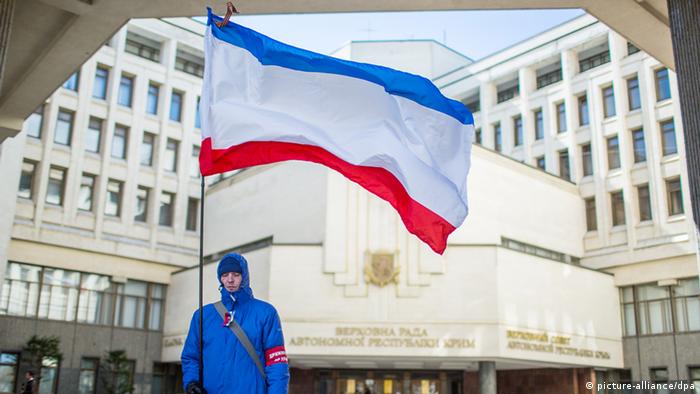Welcome
....to JusticeGhana Group

JusticeGhana is a Non-Governmental [and-not-for- profit] Organization (NGO) with a strong belief in Justice, Security and Progress....” More Details
Crimea headed for rocky transition
- Details
- Parent Category: Africa and The World
- Category: DateLines
- Created on Tuesday, 18 March 2014 00:00
- Hits: 3526
 Crimea headed for rocky transition
Crimea headed for rocky transition
The majority of Crimea's inhabitants have chosen to split from Ukraine and join Russia. Their decision, however, will bring far-reaching changes and a host of international legal problems.
"We're heading home. Crimea is now part of Russia!" Prime Minister Sergei Aksenov, of the self-proclaimed Republic of Crimea, said, addressing a cheering crowd at a concert in the center of Simferopol late on March 16. Aksenov was speaking even before the referendum results on Crimea's annexation by Russia were announced.
Crimea's rulers, loyal to Moscow despite the fact that the peninsula officially belongs to Ukraine under international law, had no doubts about the outcome of the vote. Ahead of the referendum they had predicted a turnout of more than 80 percent; at 83 percent, that goal was handily achieved. And the results of the referendum were even more overwhelming: nearly 97 percent of Crimeans are said to have voted in favor of splitting from Ukraine to join Russia.
An independent observation of the vote count was not planned and journalists were not able to verify the results. In addition, thousands of Ukrainian soldiers stationed on the peninsula were not allowed to vote and many Crimean Tatars, who make up 12 to 14 percent of the population, boycotted the vote. Kyiv has declared the referendum illegal and officially dissolved Crimea's government and parliament.
New duties for Crimea
As the Russian Black Sea Fleet choir took to the stage to sing the Russian national anthem following Aksenov's speech, it was clear that the prime minister did not know the words to the song. His lips remained closed. Aksenov probably has a much more demanding task ahead of him: studying Russian law.
Already on Monday (17.03.2014), the Crimean parliament officially approached Moscow with a request to annex the peninsula as part of the Russian Federation. The Kremlin has indicated that it plans to quickly respond in the affirmative: a first reading of the corresponding legislation in the Russian State Duma is scheduled for March 21.
Aksenov has stated that within a year, Crimea will be able to "take full advantage of the merits of Russian legislation." In this transitional phase, he said, all wages and earnings would be paid from the Crimean budget. To that end, parliament has already established a central bank for Crimea and has put an end to remittances to the Ukrainian treasury. However, electricity and water bills, which Crimea is not able to guarantee on its own, are still to be paid to Kyiv.
The ruble, the army and the fleet
The Crimean government plans to handle all its financial matters with the Russian ruble, introducing the currency on the peninsula as soon as possible. But according to Vladimir Konstantinov, speaker of the Crimean parliament, parallel circulation of both the Russian and Ukrainian currencies will be allowed in the transitional period.
The Crimean government has said that it does not want to force its inhabitants to renounce their Ukrainian citizenship. And the soldiers of the Ukrainian army stationed in Crimea will be able to decide which country they want to serve. In total, Ukraine has around 10,000 soldiers stationed on the peninsula, along with 24 warships and a submarine. Ahead of the referendum, Aksenov had declared that the Ukrainian fleet should remain stationed in Crimea.
State-owned enterprises and Russian help
The Crimean government has had a similar idea for Ukrainian state-owned enterprises operating on the peninsula. Ukrainian energy companies Chornomornaftohaz and Ukrtransgaz have already been nationalized, and a number of ports and coastal sanatoriums could be next.
Deputy Prime Minister Rustam Temirgaliyev has promised that private property will remain untouched, including food, agricultural and industrial firms and banks. But owners will need to re-register their companies and continue with their work according to Russian legislation. But should it come to sanctions between Ukraine and Russia, the European Union and Russia, or Ukraine and Crimea, it will probably be difficult for the owners of these firms - whether Ukrainian or Russian - to do business.
Furthermore, should Crimea officially become a part of Russia, it could end up being a heavy burden on the Russian budget. In an interview with DW, Yaroslav Lissovolik, the chief economist of Deutsche Bank in Russia, pointed out that half of Crimea's budget of $500 million (359 million euros) comes in the form of subsidies from the Ukrainian state.
Michael Harms, chairman of the German-Russian Chamber of Commerce, said that after the most expensive Olympic Games in history and ahead of the 2018 FIFA World Cup, Russia still has many other costly issues to deal with: the oil and gas sector, various social concerns and equipping its army.
Date 18.03.2014
Author Andreas Brenner / cmk
Editor Gregg Benzow
Source: Deutsche Welle




